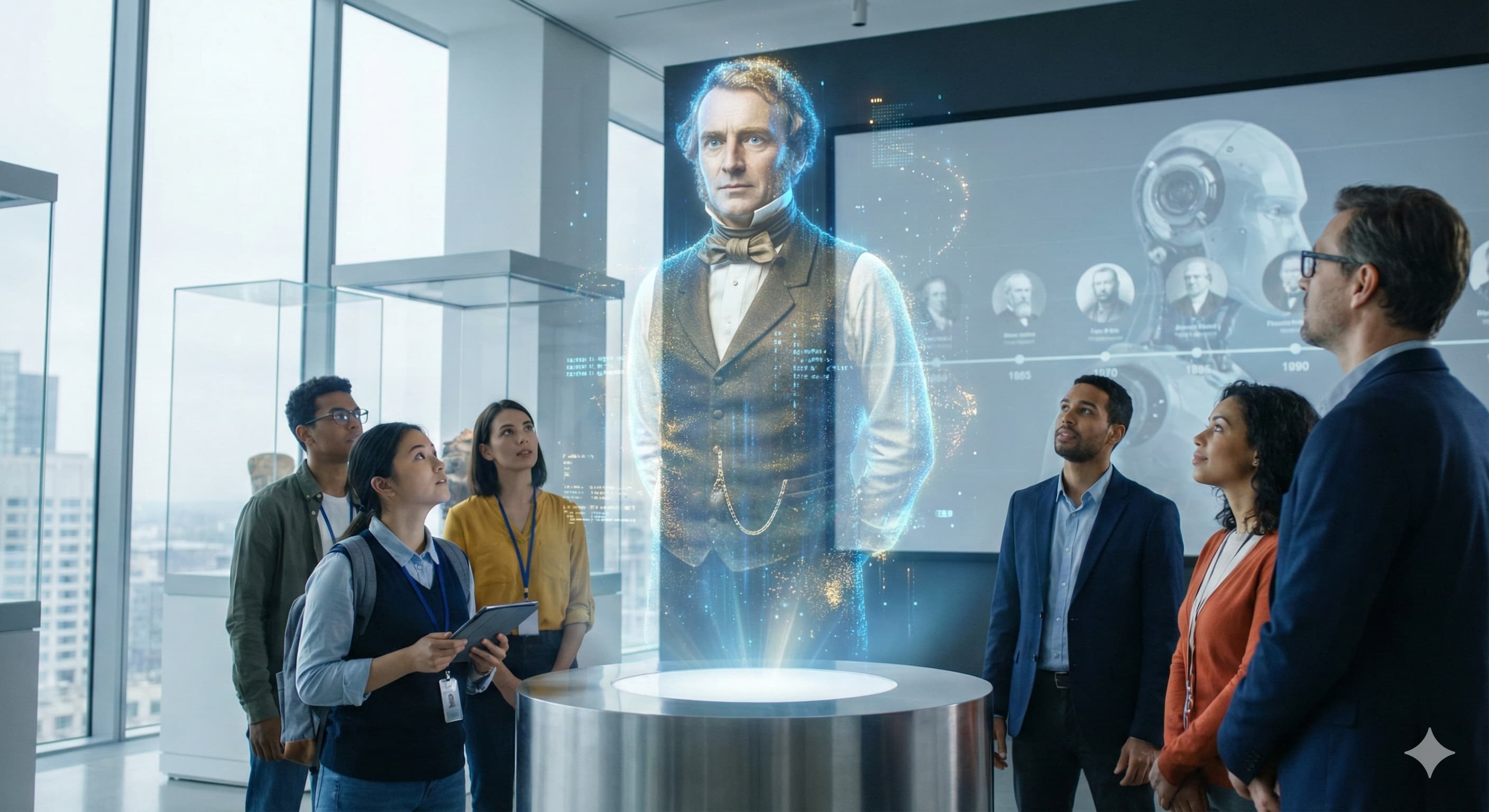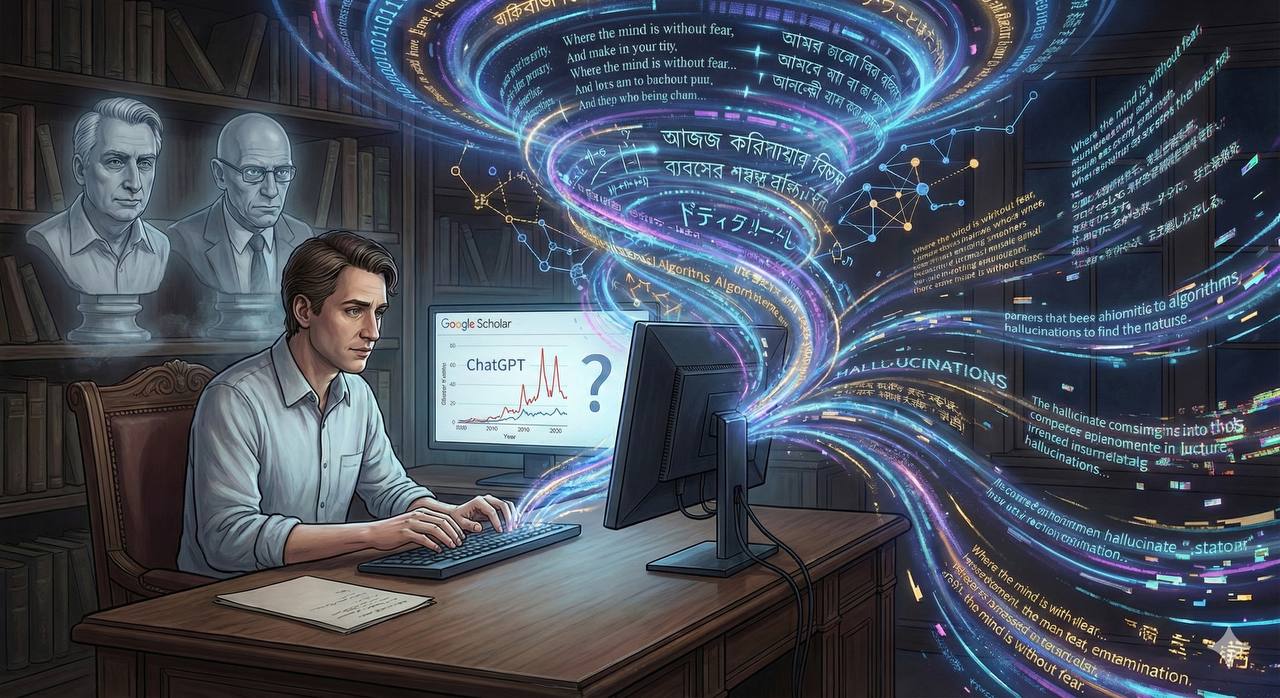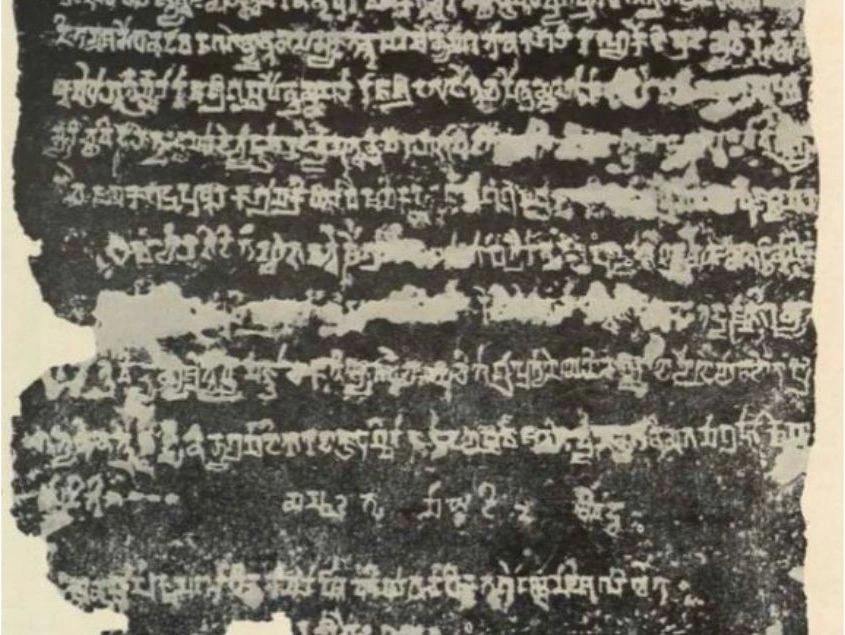Embracing Artificial Intelligence in Archival and Historical Scholarship: A Step Forward in Digitizing the Past
Archival and Historical Scholarship through AI Integration
In the vast landscape of academia, where the disciplines of Humanities intersect with the digital realm, Artificial intelligence (AI) emerges as a transformative force reshaping archival and historical scholarship workflows. In this article, we delve into the integration of AI technologies, particularly Handwritten Text Recognition (HTR) systems and AI language models like ChatGPT, and explore their profound impact on the digitization and analysis of historical documents.
The Digital Turn: From Analog to Big Data
The advent of digitization has propelled analogue sources into the realm of Big Data, opening up unprecedented opportunities for historians and archivists to explore the past with newfound depth and detail. Analogue (archival) documents, once relegated to obscurity, now undergo digital transformation, enabling automatic transcription and deep analysis through AI-driven technologies. This shift not only preserves historical materials but also enhances accessibility and facilitates scholarly inquiry on a scale previously unimaginable.
Challenges and Solutions
Despite the promise of digitization, challenges abound, particularly in the realm of automatic transcription. High error rates and the sheer volume of data present formidable obstacles for historians seeking to navigate the digital archives efficiently. However, AI tools like Transkribus and ChatGPT offer innovative solutions, leveraging their capabilities to transcribe, correct, and normalize texts with remarkable precision. While not devoid of limitations, these tools represent a significant step forward in streamlining archival workflows and enriching historical scholarship.
Exploring the Functionality of ChatGPT: A Showcase of its Effectiveness
In a recent test involving the correction of a corpus of historical letters, preserved at the State Archive of Catania (Biscari Archive), ChatGPT showcased its prowess in syntactic correction and normalization. Despite its lack of semantic understanding and access to external information, ChatGPT demonstrated an impressive ability to generate syntactically accurate text, albeit with some minor inaccuracies. This test underscores the potential of AI in assisting historians and archivists in managing and analyzing vast volumes of historical data, paving the way for new avenues of research and discovery.
The Role of AI in Archival Science
In the dynamic landscape of Archival Science, AI technologies play a pivotal role in transforming archival practices and enhancing accessibility to historical materials. From automatic transcription to entity recognition, AI tools offer invaluable assistance to archivists in navigating the complexities of digitized archives and creating dynamic, machine-readable versions of historical documents. While AI cannot replace human expertise, it serves as a powerful tool in the hands of scholars, augmenting their abilities and expanding the boundaries of historical inquiry.
Looking Ahead
As we embark on this journey of digitizing the past, it is essential to approach AI technologies with a critical eye and a nuanced understanding of their capabilities and limitations. While AI offers unprecedented opportunities for archival and historical scholarship, human oversight remains indispensable in ensuring the accuracy and integrity of research findings. By embracing AI as a complementary tool rather than a replacement for human expertise, we can unlock new dimensions of historical inquiry and chart a course towards a more digitized and interconnected future.
In conclusion, the integration of AI into archival and historical scholarship represents a significant paradigm shift, ushering in an era of innovation and discovery. By harnessing the power of AI technologies, historians and archivists can unlock the secrets of the past and illuminate the path towards a more profound understanding of human history. As we stand at the intersection of tradition and technology, let us embrace the possibilities of AI and embark on a journey of exploration and discovery that transcends the boundaries of time and space.



%20(1).png)





